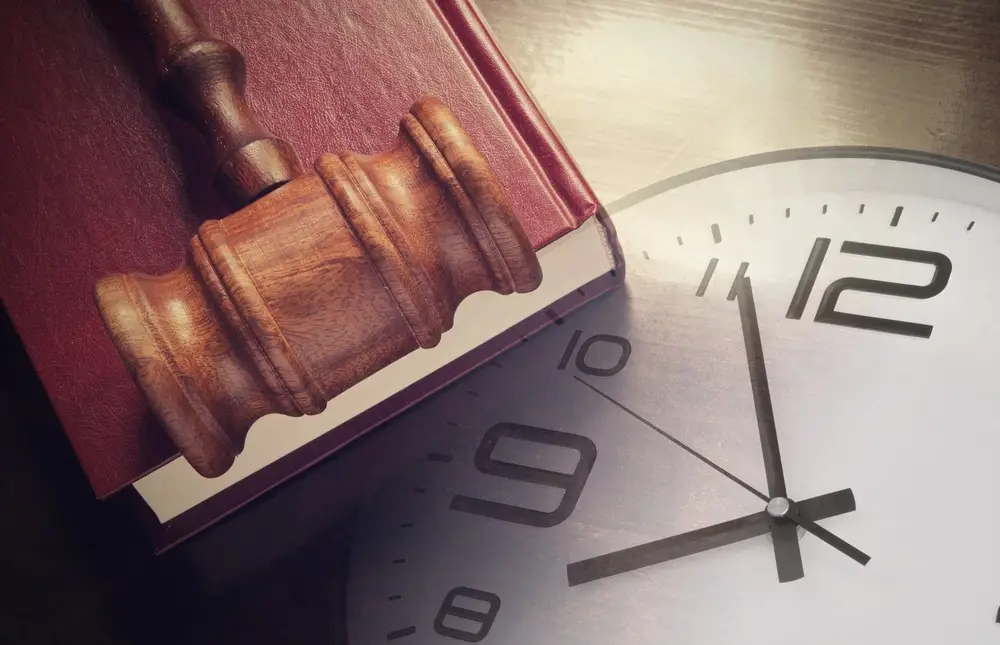If you’ve ever been injured in an accident or know someone who has, you know how important it is to receive compensation for your losses. But what happens when it comes to filing a personal injury lawsuit? How long does it take to resolve the case? Well, there’s no simple answer, as there are several factors that can affect the duration of a personal injury case. So, let’s dive in and take a look at the timeline of a personal injury case and what makes it longer or shorter.
Understanding the Timeline of a Personal Injury Case
The timeline of a personal injury case can vary depending on many different factors. Generally, the process will start with a consultation with a personal injury attorney. During this consultation, the attorney will ask you questions about the accident or incident that caused your injury. They will also ask you about any medical treatment you’ve received and any other relevant details about your case. It’s important to be as honest and detailed as possible during this meeting, as it will help your attorney build a strong case on your behalf.
After the initial consultation, your attorney will begin investigating your case. This investigation may involve gathering evidence, interviewing witnesses, and reviewing medical records. Your attorney may also consult with experts in fields such as accident reconstruction or medicine to help build a strong case.
Once your attorney has gathered all the necessary evidence, they will begin negotiating with the other party or parties involved. This may involve sending demand letters or engaging in settlement negotiations. If a settlement can be reached, the case will be resolved without the need for a trial.
However, if a settlement can’t be reached, the case will go to trial. This can further prolong the process. Depending on how busy the court is, it can take several months to even years before the trial date is set. During this time, your attorney will continue to prepare your case and gather evidence.
When the trial date is finally set, your attorney will present your case to a judge or jury. This can be a stressful and emotional experience, but your attorney will be there to guide you through the process and advocate for your rights.
After the trial, the judge or jury will make a decision. If they find in your favor, you may be awarded damages to compensate you for your injuries. However, if they find against you, you may not receive any compensation.
The timeline of a personal injury case can be complex and lengthy. However, with the help of an experienced personal injury attorney, you can navigate the process and work towards a successful outcome.
Call For A Free Consultation
,
(855) 582-9200
What Factors Affect the Duration of a Personal Injury Case?
When it comes to personal injury cases, there are several factors that can have an impact on the duration of the case. While some cases may be resolved quickly, others can drag on for months or even years. Here are some of the key factors that can affect the timeline of a personal injury case:
- The severity of the injury: As mentioned, the severity of the injury is one of the most important factors when it comes to determining how long a personal injury case will take. Cases involving catastrophic injuries or wrongful death can take much longer to resolve, as there may be complex medical issues involved, or a more substantial amount of damages at stake.
- The complexity of the case: Another key factor that can affect the duration of a personal injury case is the complexity of the case. For example, if the case involves multiple parties or multiple jurisdictions, it can be much more involved and time-consuming than a simple slip and fall case. Additionally, cases that involve disputed liability or complex legal issues can also take longer to resolve.
- The number of parties involved: The more parties that are involved in a personal injury case, the longer it is likely to take. This is because each party will need to be given the opportunity to present their case, and negotiations between the parties can take time.
- The cooperation of the involved parties: If all parties involved in the case are willing to cooperate and work towards a resolution, the case is likely to be resolved more quickly. However, if one or more parties are uncooperative, this can lead to delays and a longer timeline.
- The efficiency of the court system: Finally, the efficiency of the court system can also have an impact on how long a personal injury case takes. In some jurisdictions, courts may be backlogged with cases, which can lead to delays in scheduling hearings and trials. Additionally, if the court system is inefficient, this can also lead to a longer timeline for the case.
Overall, it is important to keep in mind that every personal injury case is unique, and there is no one-size-fits-all timeline for these types of cases. However, by understanding the factors that can affect the duration of a personal injury case, you can be better prepared for what to expect during the legal process.
The Role of Insurance Companies in Personal Injury Cases
When it comes to personal injury cases, insurance companies play a crucial role. In fact, they are often the ones responsible for handling the case and negotiating a settlement. Insurance companies have a wealth of experience in these types of cases and can help expedite the process.
However, it is important to keep in mind that insurance companies are primarily interested in protecting their bottom line. As a result, they may not always be willing to offer a fair settlement to the plaintiff. This is where having an experienced personal injury attorney on your side can be invaluable. Your attorney can help ensure that your rights are protected and that you receive the compensation you deserve.
It is worth noting that insurance companies often have a team of attorneys and adjusters working on their behalf. These individuals are highly skilled at minimizing the amount of money the insurance company has to pay out in settlements. They may try to downplay the severity of your injuries or argue that you were partially at fault for the accident.
Having a personal injury attorney can level the playing field. Your attorney will work tirelessly to build a strong case on your behalf. They will gather evidence, interview witnesses, and consult with medical experts to help prove the extent of your injuries. Your attorney will also negotiate with the insurance company to ensure that you receive a fair settlement.
It is important to remember that insurance companies are not your friend. They are a business, and their primary goal is to make a profit. While they may seem friendly and helpful, they are ultimately looking out for their own interests. This is why it is crucial to have an experienced personal injury attorney on your side. Your attorney will fight tirelessly to ensure that your rights are protected and that you receive the compensation you deserve.
Apply For Free To Get The Money You Need Now.
How Pre-Settlement Funding Can Help You During Your Case
Being involved in a personal injury case can be a stressful and overwhelming experience. From dealing with medical bills to lost wages, the financial burden can quickly add up. While waiting for a settlement or verdict, many plaintiffs may struggle to meet their financial obligations. This is where pre-settlement funding can come in handy. Pre-settlement fundings are often referred to as a “lawsuit loan” but these products are not loans because if you don’t win your case you don’t pay your money back.
Pre-settlement funding provides injured plaintiffs with a cash advance against their future settlement or verdict. This type of funding can help relieve financial stress and enable plaintiffs to pay their bills and cover living expenses while they wait for their case to resolve. Unlike a traditional loan, pre-settlement funding is non-recourse, meaning that the plaintiff does not have to pay back the advance if they lose their case.
It’s important to note that pre-settlement funding is not for everyone. Before considering this option, it’s essential to speak with an attorney to determine if this is the best course of action for your specific situation. Additionally, pre-settlement funding companies may charge high fees and interest rates, so it’s important to carefully review the terms and conditions before signing any agreements.
One of the benefits of pre-settlement funding is that it can give plaintiffs the financial flexibility to make strategic decisions about their case. With the stress of financial burdens lifted, plaintiffs may be able to hold out for a larger settlement or verdict. Additionally, pre-settlement funding can provide plaintiffs with the resources to hire expert witnesses, which can strengthen their case and increase the likelihood of a favorable outcome.
It’s also important to note that pre-settlement funding is not limited to personal injury cases. Plaintiffs involved in employment discrimination, wrongful termination, and other civil cases may also be eligible for pre-settlement funding.
In conclusion, pre-settlement funding can be a valuable resource for plaintiffs who are struggling to make ends meet during their case. With the right guidance and information, injured plaintiffs can make informed decisions about their financial future and focus on their recovery.
Get The Money You Need Now With Legal Funding. Apply Today
Conclusion
In conclusion, the duration of a personal injury case can vary widely depending on many different factors. It’s important to have realistic expectations and be patient throughout the process. Having an experienced personal injury attorney on your side can make a significant difference in the outcome of your case, and pre-settlement funding can help alleviate financial stress along the way. If you’re considering filing a personal injury lawsuit, be sure to do your research, stay informed, and seek legal advice from an experienced attorney.
Apply Now For Free To
Get The Money You Need.
Presettlement Legal Funding.






